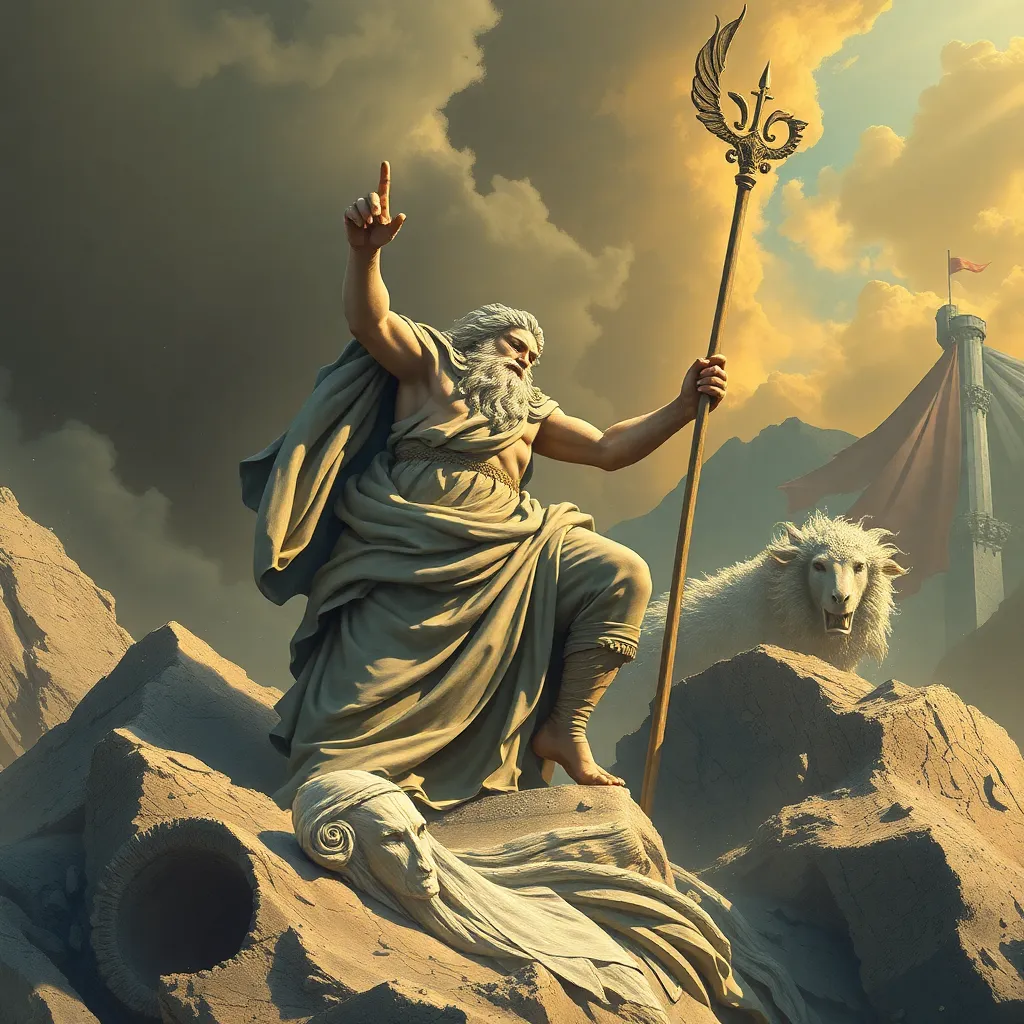The Influence of Odysseus on Modern Heroic Stories
I. Introduction
Heroism has long been a defining element in literature, often characterized by the bravery, courage, and noble qualities of its protagonists. Throughout history, various figures have emerged as archetypal heroes, each embodying unique traits that resonate with audiences. One such figure is Odysseus, the legendary Greek hero of Homer’s epic, “The Odyssey.” Known for his cunning intellect, resilience, and complex nature, Odysseus represents a quintessential hero whose influence extends far beyond ancient Greece.
This article aims to explore the ways in which Odysseus has shaped modern heroic narratives, illustrating his lasting impact on literature and popular culture.
II. The Archetype of the Hero
Odysseus embodies numerous characteristics that define a hero in literature:
- Cunning and Intelligence: Unlike many traditional heroes who rely solely on physical strength, Odysseus often uses his wit to navigate challenges.
- Bravery: He faces formidable foes and terrifying monsters, showcasing his courage.
- Leadership: His ability to lead and inspire his crew is a recurrent theme in his journey.
The concept of the “reluctant hero” has evolved significantly since Odysseus’s time. Initially portrayed as a warrior with great resolve, modern heroes often exhibit reluctance or inner conflict about their roles. This evolution can be seen in contemporary characters such as:
- Peter Parker (Spider-Man): A young man grappling with his newfound powers and responsibilities.
- Bruce Wayne (Batman): A wealthy playboy who struggles with the moral implications of his vigilante lifestyle.
Both characters reflect the complexities and ambivalence associated with heroism, a trait that can be traced back to Odysseus.
III. Themes of Journey and Transformation
The hero’s journey is a central theme in “The Odyssey,” serving as the backbone of Odysseus’s narrative. His long and treacherous voyage home symbolizes personal growth and the transformative power of experience. This journey encompasses not only physical challenges but also emotional and psychological trials that ultimately redefine his character.
Modern storytelling frequently mirrors this theme, emphasizing character development through trials and tribulations. Examples include:
- The Lord of the Rings: Frodo Baggins’s epic quest to destroy the One Ring showcases the transformative journey of an unlikely hero.
- The Lion King: Simba’s return to reclaim his throne serves as a coming-of-age journey filled with hardships and self-discovery.
These narratives reflect the enduring significance of the hero’s journey, rooted in the experiences of Odysseus.
IV. Moral Ambiguity and Flaws
One of the defining aspects of Odysseus’s character is his moral complexity. He often faces ethical dilemmas, making decisions that blur the lines between right and wrong. This ambiguity is emblematic of the modern hero, who is frequently portrayed with flaws and imperfections.
In recent narratives, flawed heroes have gained prominence, reflecting a more nuanced understanding of heroism. Case studies include:
- Tony Stark (Iron Man): A genius billionaire with a troubled past, Stark’s journey involves grappling with his ego and moral responsibilities.
- Walter White (Breaking Bad): A high school chemistry teacher turned drug lord, Walter exemplifies the descent into moral ambiguity.
These characters resonate with audiences because they embody the imperfections that are part of the human experience, a trait that can be traced back to Odysseus’s complex persona.
V. Women and the Hero’s Journey
In “The Odyssey,” female characters play crucial roles in Odysseus’s journey, from the faithful Penelope to the enchanting Circe and cunning Athena. Each woman contributes to the narrative, illustrating the importance of female agency in the hero’s journey.
Modern heroic narratives have evolved to reflect changing gender dynamics, with strong female leads often taking center stage. Notable examples influenced by the archetypes present in “The Odyssey” include:
- Katniss Everdeen (The Hunger Games): A resilient young woman who rises against oppression while navigating her own complex emotions.
- Daenerys Targaryen (Game of Thrones): A character driven by a quest for power and justice, facing numerous challenges that test her resolve.
These characters reflect the evolution of female roles in heroic narratives, demonstrating the impact of Odysseus’s journey on contemporary storytelling.
VI. The Influence of Mythology on Popular Culture
Odysseus’s influence persists in modern adaptations of “The Odyssey,” which have appeared across various media, including films, books, and television series. Notable adaptations include:
- O Brother, Where Art Thou? – A film that reinterprets Odysseus’s journey in a modern American setting.
- The Penelopiad – A novel by Margaret Atwood that offers a feminist retelling of Penelope’s story.
Furthermore, elements of Odysseus’s character can be seen in many popular superheroes and antiheroes, emphasizing traits such as resilience, intelligence, and moral complexity. The role of mythology continues to shape narrative frameworks, providing a rich tapestry for modern storytelling.
VII. Cross-Cultural Interpretations of Heroism
Odysseus’s story resonates across various cultures, showcasing universal themes of heroism, struggle, and transformation. Comparative analysis reveals parallels between Odysseus and other cultural heroes, such as:
- Gilgamesh: The hero of Mesopotamian mythology who embarks on a quest for immortality.
- Beowulf: The Anglo-Saxon hero who battles monsters and ultimately faces his own mortality.
These narratives share common elements, illustrating the universality of Odysseus’s experiences and the lessons derived from his journey.
VIII. Conclusion
Odysseus has left an indelible mark on the concept of heroism in literature and beyond. His complexity, moral ambiguity, and transformative journey continue to influence modern narratives, shaping how we perceive heroes today. The study of classical heroes like Odysseus provides valuable insights into contemporary storytelling, highlighting the evolution of the heroic narrative and its future directions. As we continue to explore the depths of heroism, the legacy of Odysseus remains a beacon, guiding us through the intricate tapestry of human experience.




